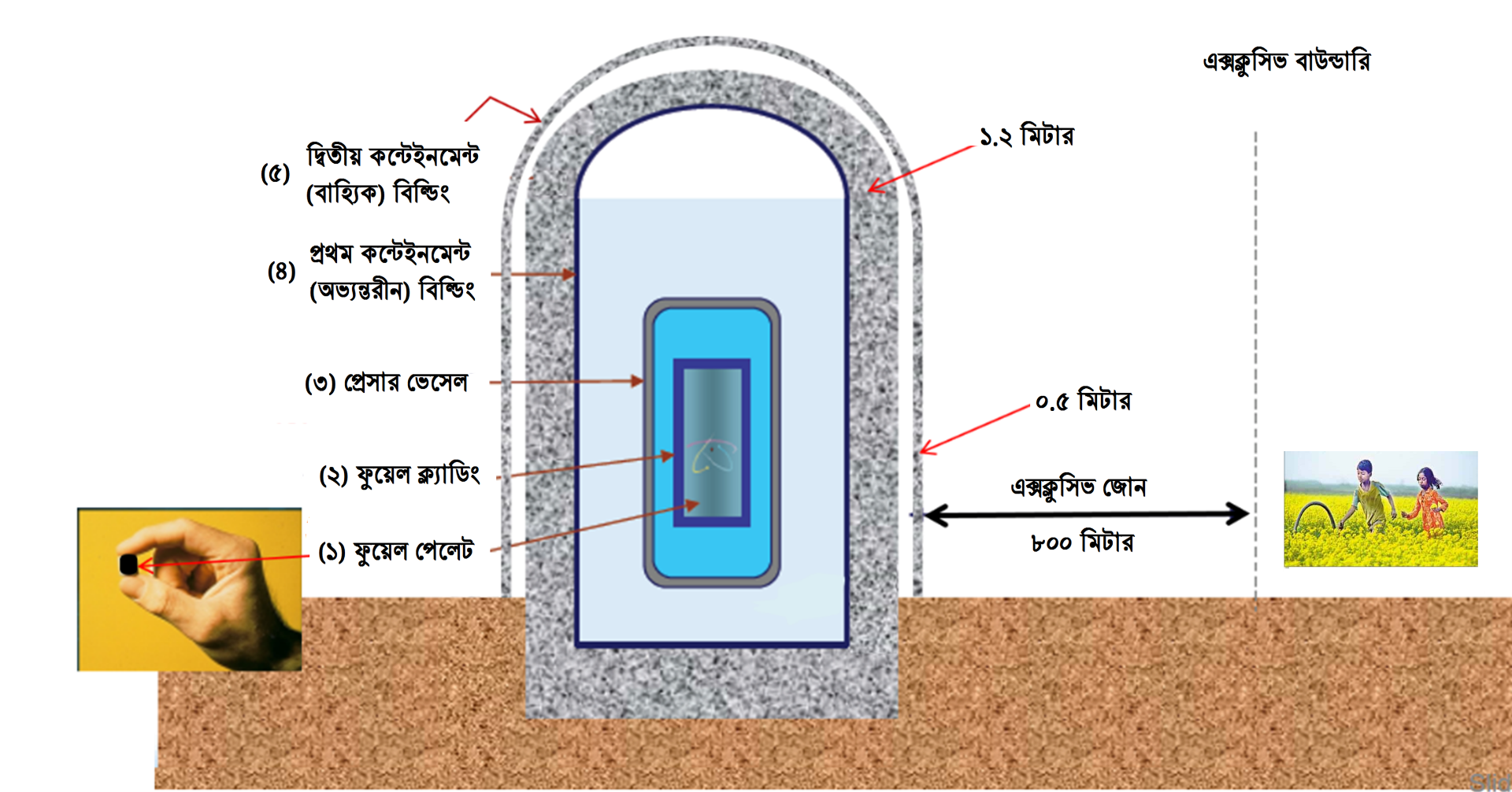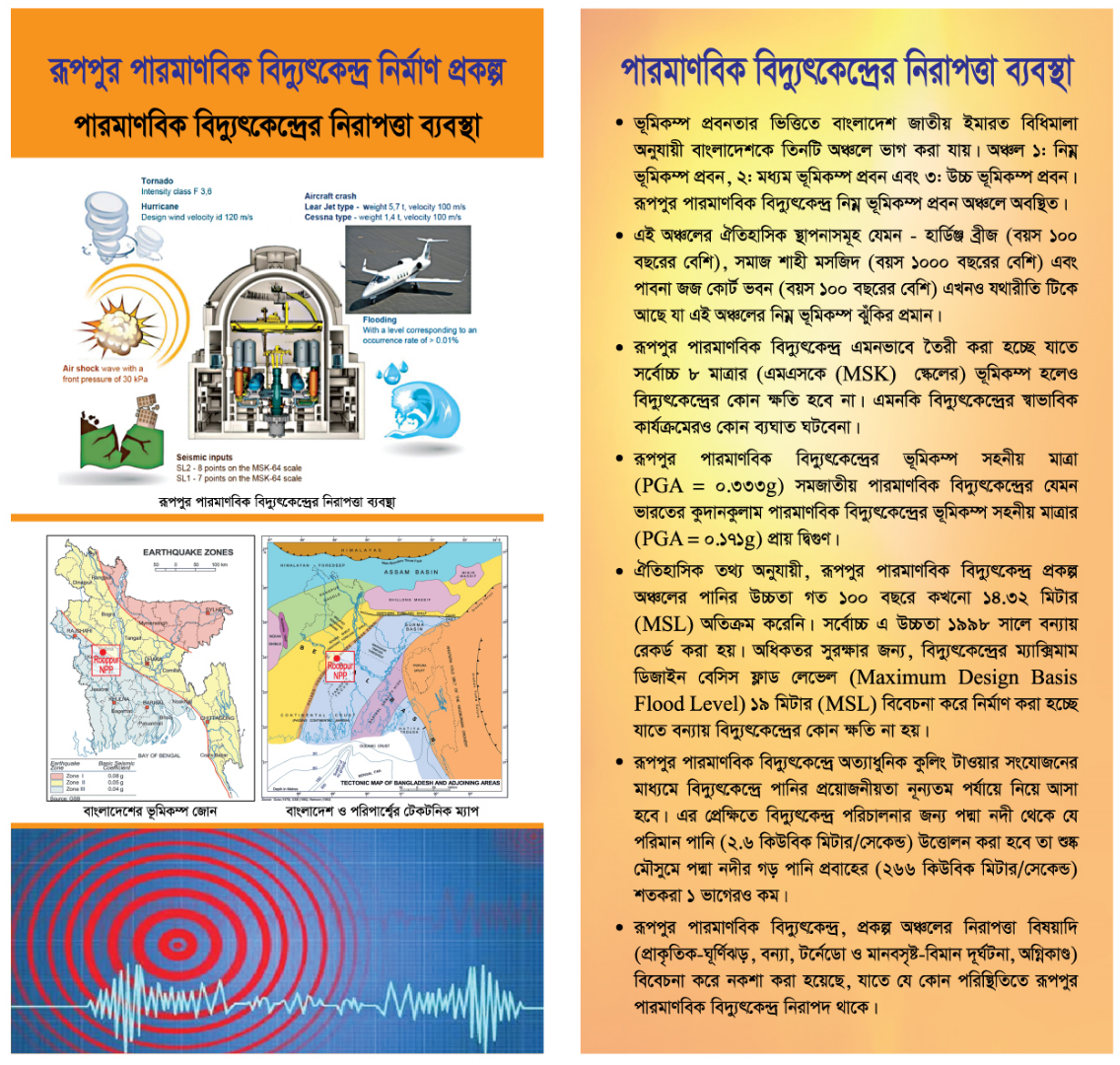A very challenging task
Shaheed Hossain, an expert in nuclear technology and former scientific officer of the International Atomic Energy Agency, talks about issues such as safety and security of Bangladesh’s first nuclear power plant, construction cost, human resources development and spent fuel management, which have raised public concerns, with Manjurul Ahsan in a recent interview with New Age.
BANGLADESH has launched its first nuclear power plant project, with its construction scheduled to begin this August and the commercial operation of the two-unit plant scheduled for 2025. The External Relations Division signed a $11.385 billion supplier’s credit deal with Russia for the construction of the power plant with a combined generation capacity of 2,400MW using Russian VVER 1200 pressurised water reactors. The Russian credit — some 90 per cent of the total construction cost estimated at $12.65 billion — will carry a maximum of 4 per cent interest rate including LIBOR, with a 30-year repayment period, including 10 years’ grace period.
With a backlog of almost 50 years, in 2011 the government signed an inter-governmental agreement with Russia for building the nuclear infrastructure in Bangladesh. The agreement was followed by four contracts of $555 million covering the preparatory work and human resoruces development for the nuclear power plant.
Manjurul Ahsan: Do you think nuclear power plants might pose security threat?
Shaheed Hossain: If international guidelines are properly followed, there should not be any such threat.
Manjurul Ahsan: Do you think Bangladesh is ready to ensure safety and security of nuclear power plant?
Shaheed Hossain: Bangladesh is proceeding as a newcomer country for an NPP following the IAEA’s so called Milestone approach, which has 19 infrastructure issues including safety and security. Some gaps in safety/security and other issues have been encountered by the last mission of Integrated Nuclear Infrastructure Review of IAEA on this milestone check, which need proper attention by Bangladesh in time left before construction/operation.
Manjurul Ahsan: Do you think the Rooppur NPP will be commissioned as per schedule?
Shaheed Hossain: It is very difficult to predict such a schedule for a mega project like that, particularly if it is first in a newcomer country.
Manjurul Ahsan: What are the impacts (with magnitude) of delay in project implementation?
Shaheed Hossain: Delay in time is usually followed by higher costs. Such cost escalations due to delays would be very difficult to predict, because many factors could play a role. Bangladesh should try to keep schedule as tight as possible, without neglecting safety. One can get ideas of delay consequences from past experiences in other countries.
Manjurul Ahsan: When would Bangladesh be able to operate and maintain the reactor and power plant with its own manpower?
Shaheed Hossain: In course of time, yes. With proper built up of manpower within five years of operation!
Manjurul Ahsan: Don’t you think that the initiatives taken so far by the government are inadequate for developing human resource in nuclear technology? Why?
Shaheed Hossain: For a newcomer country, it is always a big challenge to develop human resources timely and adequately. If the development is too early there is a risk of manpower depletion due to frustration and opportunities outside the country. If it is too late there is a risk of delay in NPP development. A balance is required.
Manjurul Ahsan: So where do we stand; is it satisfactory?
Shaheed Hossain: As I have mentioned earlier it is a very challenging task and there will be always some deficit to overcome — I cannot say it now in a satisfactory state, but we still can catch up!
Manjurul Ahsan: Do you think that the project cost is much higher compared to global market? Why?
Shaheed Hossain: The current project cost of a comparable project in global market would more or less be the same, particularly in a newcomer country. An example would be two similar VVER 1200 units under consideration in Hungary.
Manjurul Ahsan: Are the VVER 1000 reactors obsolete in the post-Fukushima era? If not, what could be the justification for choosing expensive VVER 1200 reactors?
Shaheed Hossain: Currently, VVER 1000 reactors are also being upgraded with added passive and active safety features to cope with lessons learnt from Fukushima. These upgraded reactors would also cost more or less the same per unit capacity.
Manjurul Ahsan: Do you think a site like Rooppur is safe for such heavy installation? Or would you call it risky for the construction there?
Shaheed Hossain: Building any heavy installation anywhere in soft soil like Bangladesh is a challenge. Rooppur is not an exception. It would be an engineered solution for this problem, which has to be designed and implemented very carefully.
Manjurul Ahsan: Do you think that Bangladesh can handle low-level radioactive nuclear wastes?
Shaheed Hossain: Yes. In fact Bangladesh is managing its institutional low level waste from research facilities, hospitals, industries, agricultural use, etc., including disused sealed radioactive sources, by collecting, and processing them for storing in a storage facility. However, the endpoint of most of these wastes would be near surface disposal facilities, which has to be built nationally (in Bangladesh). With the additional LLWs from nuclear power plants the storage facilities need upgrading or building new such facilities for nuclear power plant wastes. A final disposal facility of all LLWs has to be built nationally in suitable site in Bangladesh.
Manjurul Ahsan: Would you please explain about the future market potentials of the spent nuclear fuel?
Shaheed Hossain: The Spent Nuclear Fuel contains resources, uranium and plutonium, which can be extracted through a complicated process (by ‘reprocessing’). It would not be so easy to predict the future market potentials of the spent nuclear fuel. The extraction process of uranium and plutonium are itself costly and plutonium is the only element which is not otherwise available and which is required for fueling Fast Reactors. How many of these reactors will be built in which time frame is difficult to predict.
Manjurul Ahsan: Should the government/ the authorities concerned go for commercial contract for removing SNF from Bangladesh? Or the government should wait until the SNF is matured for long-term storing?
Shaheed Hossain: According to our NPP construction IGA, the SNF will be returned to the vendor. The conditions attached to it need to be properly explored.
Manjurul Ahsan: Do you think that mono dependence for fuel supply could create any burden on the country/nation?
Shaheed Hossain: The service in the front end of the nuclear fuel cycle, eg fuel supply, is rather market oriented and more transparent, is directly related with international uranium costs, which varies over time and any supplier can hardly dictate the price.
Manjurul Ahsan is a staff correspondent at New Age.
- See more at: http://www.newagebd.net/article/6412/a-very-challenging-task#sthash.AR1Ob6Hv.AO9sfLzB.dpuf
সংবাদত্রের নামঃ The New age প্রকাশের তারিখঃ 07.01.2017 পৃষ্টাঃ অনলাইন







